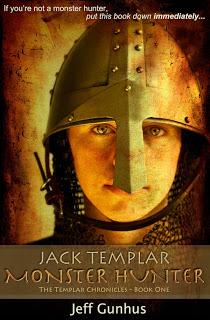Blogger Tips: The
Case of the Negative Review
I noticed recently a ton of negative reviews on different
blogs I follow as well as Goodreads. That being said, I’ve also noticed a lot
of people lamenting having to write these negative reviews on twitter,
facebook, forums, and a whole bunch of other places. That being said, here’s my
stance on negative review and why they’re important:
1. It’s Not A Bad
Review
Let’s clear one thing up first: A negative review is not
a bad review. A bad review is someone
who misspells every other word, has more grammatical errors than not, and/or
flames an author or their work for the sake of being snarky (read: bitchy) or
mean (read: asshole-y).
A negative review simply means you didn’t like the book.
It’s not a criticism against the author as a person, against a genre, or
anything else. But if you’re going to write a negative review you have an
obligation to the author and your readers to back up why the book didn’t work
for you.
2. DNF Is A
Three-Letter Word
The dreaded “did not finish” stamp. It took me a long
time to accept that this wasn’t me quitting or something bad. For years I
operated under the belief that even if I skimmed every page, I had to finish a
book. I’ve realized now that there are too many books out there to get caught
up in the one that didn’t work for me.
 Books are like shoes. Some fit, some don’t. Some make you
feel like going out to a club and partying while other rub you the wrong way
and give you blisters. We all have different likes and dislikes.
Books are like shoes. Some fit, some don’t. Some make you
feel like going out to a club and partying while other rub you the wrong way
and give you blisters. We all have different likes and dislikes.
Some people think if you didn’t finish a book you have no
right to review it fairly. Other say review it as is. I say do both.
If there is a reason why I didn’t finish a book that I
feel is valid (bad plot, unbelievable characters, etc.) then I will review it
if I think there are people out there that will glean something from my review.
If I stop reading a book because we just didn’t click? Then I say let it go, no
harm no foul.
3. Stand Your Ground … As Long As It Isn’t Quicksand
Don’t let other people make you
feel bad about writing a negative review. But also don’t put yourself in a
position where you look like an jerk for writing negative review.
It’s fine to not like something, but you have to back up
why you didn’t like it. Don’t just say, “I didn’t like it. The character was
stupid.” Give examples and be as specific as possible. You don’t need to lay
out a one-hundred point essay on why it didn’t work, but touch on the main
reasons to show you put some thought into this.
4. Objective vs. Opinion
I know the rule of thumb is
that all reviews are supposed to be objective. I get this. Problem is, there’s
no such thing as objective in this world. We are all tainted by our personal
experiences, life events, and memories. Those forces are what drives us to
either connect or not with a book. I’m not saying this is bad or wrong, but it
simply is.
I grew up in a very Christian
environment and I hold a lot of those beliefs to be very true. I can’t say I
wouldn’t be offended if I picked up a book with a protagonist who burned
crosses and set churches on fire. But that’s not to say someone else wouldn’t
enjoy this book.
You have to make a choice: You
review can be as unbiased as you can possibly make it, but then isn’t that more
of a book report? Or you can stay true to yourself and state you opinion, but
make it clear that this is your
opinion and respect that others may have a different view than yours.
5. Against the Grain
Sometimes the hardest reviews
to write are the ones for a book we didn’t like when everyone else is raving
about it. I felt that way about several books. I was so excited to read The Unbecoming of Mara Dyer because everyone
RAVED about this book for months. I was so excited when I got my copy and then
I felt like an idiot because it fell kinda flat for me.
I still wrote my review and I
was surprised to find a lot of people coming out of the woodwork in support of
my review. I promise you won’t be the only person who feels this way about a
book.
 6. Save the Catfights for the Club
6. Save the Catfights for the Club
A review is no place to air out
your dirty laundry. If you have a problem with an author, or even a publisher,
being a snarky wench in you review might earn a few giggles but it won’t earn
you an ounce of respect. A blog is no place to show how easily you can cut
someone with words. It’s petty and childish and just don’t. OK? Don't be an ass for the sake of trying to look cool. No on buys it and you look like a bigger ass.
7. Blogger Compromised
Raise your hand if you’re on
twitter.
Raise your hand in you follow
an author on twitter.
Raise your hand if you’ve ever
chatted with a really sweet author on twitter .
Raise your hand if you read a
book by a really sweet author on twitter and strongly disliked that book.
I’m pretty sure we all have our
hands up right now, myself included.
One of the coolest things about
social media is how accessible it has made authors. I love that I can tweet an
author and they freaking respond back!!!
But that only makes it all the more difficult when I read their book and I don’t
like it.
There is no easy answer here. I
wish I could tell you what to do, but I can only tell you what works for me. I
will admit that I have simply not
reviewed the book I didn’t like. I have also review that book as honestly as I
was able and then buried it between a bunch of other posts, praying no one saw
it. Mostly now I review the book honestly, and I’ll post extra links after my
review to reviews that raved about
the book to prove it’s just my
opinion and there are plenty of other who did enjoy the book, even if I didn’t.
Ultimately my goal is to see
authors succeed. I don’t want any
author to fail. As a blogger it’s a duty and privilege to promote books and
encourage people to read. I don’t ever want something I wrote in a review to
discourage someone from picking up a book.



































